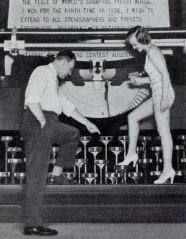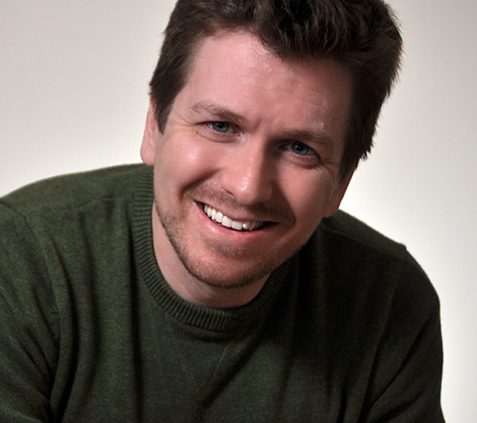Welcome to the World of Writing: My Advice for New Writers
A guest post by Scott D. Southard
 I wrote my first collection of short stories at 16. I have always loved writing. My mom still tells the tale about how, on a car ride home at age 6, I made up an entire story. (It involved a ghost watching his grieving wife, I believe.) She felt she had to write it down when she got home. For good – and many, many times bad – there was little else I saw myself doing with my life.
I wrote my first collection of short stories at 16. I have always loved writing. My mom still tells the tale about how, on a car ride home at age 6, I made up an entire story. (It involved a ghost watching his grieving wife, I believe.) She felt she had to write it down when she got home. For good – and many, many times bad – there was little else I saw myself doing with my life.
And when I was young and new to the field, I had hundreds of questions. For example, there was the time I met this professor at my undergrad college at orientation. Well, he was a published writer. I read some of his books before going. And I pretty much stalked him, asking him question after question that afternoon. Embarrassingly, I believe I might’ve followed him all the way back to his office.
Recently, I got a comment on my site from someone calling herself a newbie novelist. She asked me a series of questions regarding how to breakthrough and what to do. It reminded me of myself when I met that professor. But this time, I was the professor, expected to have the answers, the secrets to the castle, the path to Oz.
The fact is today, if I was that professor, I would’ve taken a different approach. While agents and publishers and the debate over publishing versus self-publishing are all important, some other things get missed in the excitement around the idea of just finishing a book. Below are the six pieces of advice I would give to any new writer first.
1. Read A Lot
Writing is an art form, it is a study. And if you want to be the best writer you can be, you need to embrace this art form. That means reading a lot, not just your favorite book or author or genre over and over again. (Remember, the best works in ANY genre are those that break or redefine the mold, no one remembers the “cookie cutters.”)
Everything! This means reading books you think you will dislike, banned books, classics (every century), short stories, stories/books from other cultures, poems, and everything else you can get your grubby hands on… Oh, and watching a movie version of a book, doesn’t count.
Think of it this way: a painter has a brush, you have your mind. Your mind is your one tool. And one of the guaranteed ways to make your tool sharp is to fill up that internal library.
See for me, when I look at my books I see all of the influences of the writers I have read there. For example, I wrote a book on this site called Permanent Spring Showers and in the chapters I see everything from Richard Brautigan to e.e. cummings to Charles Dickens to Jane Austen to Kurt Vonnegut to James Joyce and on and on and on. No, I’m not stealing material from them, I am seeing their influences in my words, how I decide to present a description or a scene, my pacing, my character development. They are all part of the library in my head, and I am a better writer for reading all of their work.
So if you want to be a good writer someday, the first thing you need to do is read… and I mean, read a lot. And this knowledge base you create will help you in any writing roadblocks you might experience in the future as well.
2. Take Your Time
So often in today’s world we feel rushed. Just look at the news, something urgent is always going on some place. Yes, that is fine for the outside world, but it doesn’t help you inside your brain; rushing yourself or your writing will not help your creativity, nor will it help your book.
Unfortunately, your creativity is not logical, nor does it work on anyone else’s timetable. You need to listen to it, and do what it wants you to do; it is the best way to ensure that the work you create will be the best stuff you can do.
The fact is, as a writer, I can tell when an author feels rushed to finish a book. How? Because they use the same words or expressions over and over again, their characters are flat or simply two-dimensional, and the plot feels more like a “some book-combined-with some other book” idea as compared to being original. Your readers will not thank you just because you got it out into the market sooner.
Make your book important to your readers by making it important to you.
Give it the time to flourish. A book can take more than a few months to be written, a book can even take a few years. And that is perfectly okay (Remember all writers work differently, and all books are created differently).
The book will tell you when it is done, but you have to take the time to listen to it.
3. Find Other Writers
Sorry to burst this bubble, while getting the approval from a parent, teacher, or friend can be great; truthfully, many times, they are saying things not to hurt your feelings. You need to seek out new readers and writers to see if your stories are working.
In most communities around the country there are writing tables. Basically, they are weekly or monthly meetings of writers who are looking to share their material, get feedback, and grow in the art form.
Consider joining a writing table. You don’t even have to share your writing right away! Just experiencing other writers, other new works, and hearing the exchanges will help you. Many times these writing tables can be found in libraries, coffee shops, and bookstores in your area. And when you are ready to enter the world of agents and publishers, they can also be a haven of support. They could become your new band of brothers.
4. A First Draft Is Only a First Draft
Finishing the first draft of a book is a great feeling. It can be one of the best feelings as an artist you get, because not only have you accomplished something unique, but the world and all its possibilities feel so close to the touch.
Yet, your book is not done. Not even close. The first draft is only a beginning. It is really in the re-reading, the re-writing and the continuous review where the true art takes place. What you might not realize looking at that fresh pile of papers is all the mistakes, contradictions, and repetitions that might be in it. Sadly (as I noted in this piece), I see these issues a lot in self-published manuscripts.
You didn’t do anything wrong! Not at all, it’s just that it is a first draft and it wasn’t ready for a normal reader’s eyes. If you ever get a chance to see a handwritten first draft of a famous author (many libraries and museums will have them), you will see they are covered with scribbles and corrections by the author. No one just sits down and writes a classic. Your first draft is the first step. Yes, enjoy the moment of accomplishment, but remember it is not done yet.
Keep working, keep being unsatisfied. Your readers (and even the book) will thank you, if you give it the time.
5. Embrace What Makes Your Voice Unique
We all have favorite writers, they are what inspire us to consider taking up this mantle. It is your job as an artist to find your own voice, to find what makes you unique.
What that means is doing more than just writing, but finding what you do best. Remember, the world doesn’t need another writer like “someone” or “someone,” they already have one. That writer!
I can’t give any advice on how to do this or what to look for… Why? Because, I am not you. This is your journey alone. Don’t be afraid to start this adventure, but remember it will take time. Maybe even a lifetime.
6. Knowing the World…
I can’t sing. I can’t even hold a note while singing along to my iPod in my car (and trust me, I do it anyway). Also, I can’t draw anything besides a tree or a snowman to save me. Certain talents in the arts are given to us, and writing/storytelling is one of them, just like painting and singing. And no matter how many art lessons or singing lessons I take, I know my limitations will always be there.
What I’m trying to say is not everyone is meant to be a writer. How will you know if you are one of the lucky few? Actually, that is very easy to answer and these simple questions can help:
- Is writing fun?
- Do you find coming up with original and new ideas easy?
- Do you look forward to sitting at your computer and creating a story?
- Do you enjoy reading or sharing your stories with others?
If the answer is yes to those questions… well… there you go. Now, that doesn’t mean you are destined to be the next JK Rowling. Just like a choir is full of singers, the world is full of writers, but what it does give you knowing that is a piece of mind.
And this brings me up to the hard truths of the world today. Very few writers make enough to live off of their writing. Very few, and a majority of them are the bigwigs who have the backing of major publishing houses and agents (they are not self-published); and to get to that point is like winning the lottery. If you are looking at this as a true career goal, I would recommend taking a breath.
That’s not to say, don’t try. You should. You only live once, but don’t put your financial success and debt and future on the line for it. In other words:
Write for the love of writing first, not for the possibility of money.
On my site, I have numerous little editorials about agents, publishing, etc. (Most can be found by using the sidebar and clicking on “writing” as a subject). Right now, at the start of your career; just enjoy the writing part. (But if you have to have something here, try agentquery.com for searching for agents, and enter your work in every writing competition you can, local and national; you need them on your resume.)
The wonderful thing about our world is that there are so many different and various possibilities for a career, but if you truly want to be a writer… welcome.
We are always looking for new and original stories on this planet.
***
Scott D. Southard is the author of four novels published in the last few years, A Jane Austen Daydream, Maximilian Standforth and the Case of the Dangerous Dare, My Problem With Doors and Megan. You can find them via his Amazon author page or on Google eBooks. He is also an editor with rebeccatdickson.com. Got a manuscript that needs a special touch? Contact us and ask for Scott.


